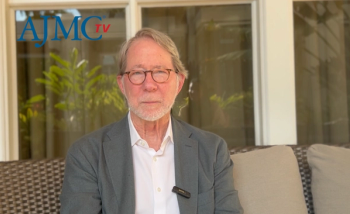
In a pair of lively debates at the International Stroke Conference 2026, experts from around the world discussed controversies in stroke care.

In a pair of lively debates at the International Stroke Conference 2026, experts from around the world discussed controversies in stroke care.

OCEANIC-STROKE shows asundexian cuts recurrent ischemic stroke risk across noncardioembolic subtypes without increasing major bleeding risk.

Stroke patients face unequal access to clot-removal care; race and insurance shape transfers, even with Medicare—here’s what must change, according to Luke Messac, MD, PhD.

Experts at ISC 2026 highlighted growing evidence that GLP-1 receptor agonists may reduce stroke risk and support brain health through anti-inflammatory, vascular, and neuroprotective mechanisms.

ED dizziness visits see rising MRI use at discharge; exam-guided imaging helps detect missed strokes and informs secondary prevention.

Stroke recovery improves when care addresses social needs like reducing loneliness and depression and strengthening support.

Linda Stein Gold, MD, shares insights on new therapeutic options for patients with various psoriasis subtypes and psoriatic arthritis.

OCEANIC-STROKE shows asundexian cuts ischemic stroke recurrence by 26% in patients taking standard antiplatelet therapy, with no major bleeding increase.

Yearly dental visits were associated with fewer secondary strokes, and hyperthyroidism was flagged as a key CVST risk factor in women.

Shervin Badihian, MD, explains how digital health tools can help boost poststroke activity via reminders, goals, feedback, and gamification.

Clearer definitions, tailored programs and policies, and telestroke care could help close rural stroke care disparities.

Rising stroke rates in young adults highlight the need to manage blood pressure and cholesterol early and improve outcomes through better ICU care.

Deaf patients face major gaps in stroke care, from poor ASL health literacy to interpreter barriers, undermining discharge understanding and emergency response.

CHOICE2 found intraarterial alteplase after thrombectomy raised the odds of excellent outcomes following large-vessel occlusion ischemic stroke.

Experts at Maui Derm 2026 discuss the meeting’s focus on in-depth clinical education, practical patient care pearls, and interdisciplinary networking.

Maui Derm 2026 showcased groundbreaking advancements in dermatology, focusing on biologics, innovative treatments, and future technologies for skin health.

Discover how innovations in biology and engineering are transforming dermatology, featuring breakthroughs in laser therapies and precision medicine.

Vivian Shi, MD, discusses the evolving strategies for managing hidradenitis suppurativa, including biologics and combination therapies, at Maui Derm 2026.

Donna Culton, MD, University of North Carolina at Chapel Hill, outlines diagnosing autoimmune blistering diseases.

A Maui Derm 2026 session explored advancements in pediatric dermatology, emphasizing precision medicine and targeted therapies for children.

Speakers delved into innovative strategies in skin tumor management, focusing on chemotherapies, patient risk assessment, and evolving treatment protocols.

Philip Mease, MD, discusses the different treatment options now available for patients with psoriasis and psoriatic arthritis.

Jerry Shapiro, MD, discusses strategies for treating patients with scarring and nonscarring alopecia.

Experts discuss groundbreaking therapies in dermatology at Maui Derm 2026, addressing complex skin diseases and enhancing patient care with innovative treatments.

Paul Nghiem, MD, PhD, discusses individualized therapies and the evolving role of AI in improving outcomes for actinic keratosis and related skin conditions.

Lawrence Eichenfield, MD, outlines a patient-centered approach to atopic dermatitis, assessing disease history, life impact, and prior therapy use.

Daniel Siegel, MD, discusses a loophole he looks out for in ICD-10 coding and billing.

Maui Derm 2026 showcases groundbreaking clinical trial data and innovative strategies in dermatology.

James Song, MD, discusses best practices and strategies for managing patients with psoriasis in 2026.

Alongside physician collaboration, patient advocacy is essential to ensure clinical trials and public policy reflect patient-centered outcomes.

259 Prospect Plains Rd, Bldg H
Cranbury, NJ 08512
© 2025 MJH Life Sciences®
All rights reserved.
